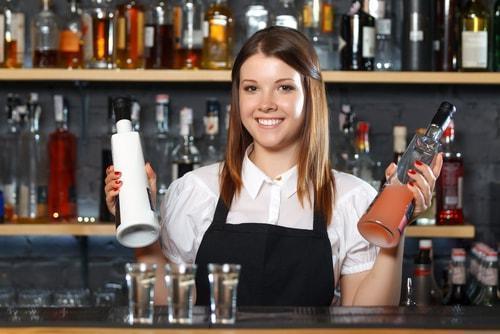Bartenders at Increased Risk for Sexual Harassment
 In recent months, sexual harassment and other types of sexual misconduct have taken center stage in the American public’s consciousness. A number of high-profile Hollywood personalities, comedians, politicians, and other figures have been accused of sexual harassment, sexual assault, and more. Even Philadelphia icon Bill Cosby was recently found guilty of three counts of aggravated indecent assault by a Montgomery County jury.
In recent months, sexual harassment and other types of sexual misconduct have taken center stage in the American public’s consciousness. A number of high-profile Hollywood personalities, comedians, politicians, and other figures have been accused of sexual harassment, sexual assault, and more. Even Philadelphia icon Bill Cosby was recently found guilty of three counts of aggravated indecent assault by a Montgomery County jury.
Sexual harassment, however, is not limited to celebrities. In fact, it is probably taking place at a bar or restaurant near you—possibly even your own workplace.
A Dangerous Profession
According to various studies, bartenders are extremely vulnerable to non-fatal, on-the-job violence—the third-most of any profession. Only law enforcement officers and those who work in security-related jobs are more at risk. Unfortunately, a large portion of such violence is linked to sexual harassment.
Bartenders are especially prone to sexual harassment for a number of reasons. First and foremost, consumption of alcohol and the loose, party-like environment that exists in many establishments create an atmosphere that is conducive to sexual harassment. Alcohol, for many people, is a social lubricant that decreases inhibitions, especially in regard to sexual behavior. Bartenders are also typically friendly, outgoing, and perhaps even a little flirty, all of which can be construed by a drunk patron as an open invitation for sexual advances.
While some bars and restaurants require their staff members to complete training regarding sexual harassment, many more do not. The reality is that many bartenders and servers simply view enduring sexual harassment—particularly by customers—as part of their jobs.
A Unique Approach
Safe Bars is an education and training program based in Washington D.C. that helps bartenders and other staff members recognize and stop sexual violence—both when it is directed at them and when it is focused on customers. The program places an emphasis on “bystander training” by encouraging staff members who see something to do something. This approach has been shown to be more effective at stopping sexual harassment than conventional training.
Unlike other forms of sexual harassment, the type of harassment that occurs most often in bars happens in the presence of many other people. This means that there are many bystanders with the power to address the situation. “We all, I believe, are bystanders as often as every day,” said Lauren Taylor, the director of Safe Bars, “no matter where we are, a bar or somewhere else.”
We Can Help
At Colianni & Leonard LLC, we recognize that sexual harassment is completely unacceptable under any conditions. We provide guidance to victims and work to bring perpetrators of sexual misconduct to justice. If you have experienced sexual harassment at work, contact an experienced Pittsburgh sexual harassment lawyer for help. Call 412-680-7877 for a free initial consultation.
Sources:
http://money.cnn.com/2018/01/03/pf/bartenders-sexual-harassment/index.html
https://www.cosmopolitan.com/career/a15334055/female-bartenders-sexually-harassed-at-work/

 412-680-7877
412-680-7877






